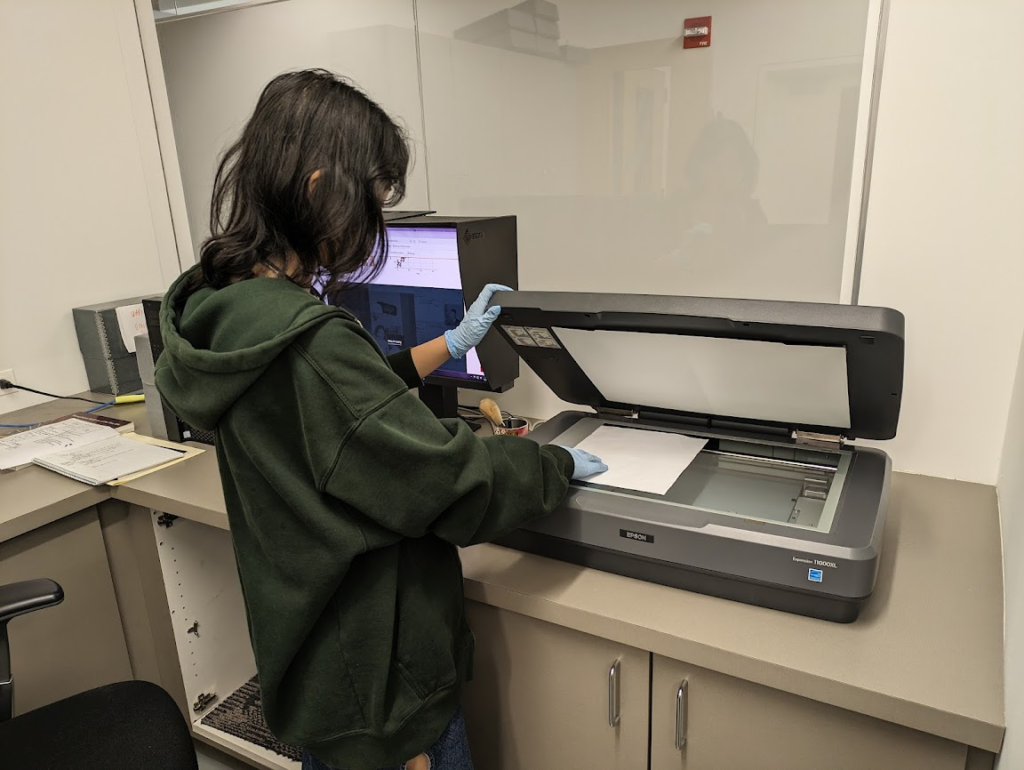Contributed by PAFA Museum Collections
One of the many challenges we face when photographing works from the collection is avoiding different kinds of unwanted reflections. Even small adjustments to our lights can result in everything from an overpowering glare to a flattening of any surface texture in the final image. Even trickier is dealing with works that are behind glass/plexiglass, which often reflect the environment back like a mirror.
Addressing this requires making sure that anything within the frame of the shot is cloaked in dark fabric, which won’t reflect enough light to interfere with the image. In addition to cloaking the equipment, we also must ensure that we personally are kept behind the fabric when operating the camera. At times it can look a little odd, but it goes a long way in improving the quality of the museum’s documentation of work.


About the Institute of Museum and Library Services
The Institute of Museum and Library Services is the primary source of federal support for the nation’s libraries and museums. We advance, support, and empower America’s museums, libraries, and related organizations through grantmaking, research, and policy development. Our vision is a nation where museums and libraries work together to transform the lives of individuals and communities. To learn more, visit https://www.imls.gov/and follow us on Facebook and Twitter.
